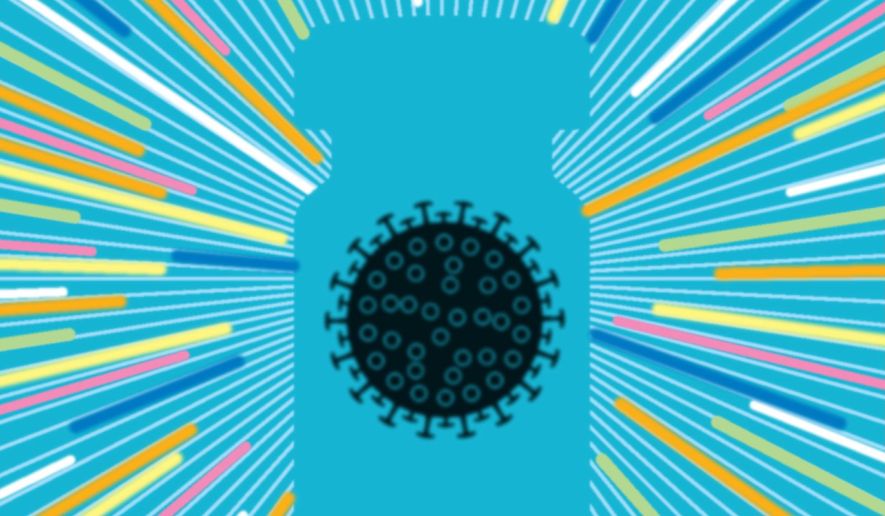OPINION:
Health emergencies can change daily living for countries and the world, as demonstrated by the COVID-19 pandemic. Lockdown after lockdown spread first in China and then on to Europe and the rest of the Western world, bringing fear with it.
With no clearly defined length of time given by government leaders on when a return to normalcy could be expected, many realized a post-lockdown world required an immunization program.
This discouraged everyone looking to return to the office, visit a loved one, or just live without fear and a mask. Vaccine development can take 10 to 15 years on average before moving on to the licensing stage. Due to the lack of innovation and experimentation historically allowed by the United States Food and Drug Association (FDA), it was unclear when normalcy could return.
That is when the Department of Health and Human Services (HHS) stepped in to expedite the vaccine development process. With a program coined “Operation Warp Speed,” HHS leveraged innovation, powerful partnerships, and our country’s resources like never before.
By doing so, many innovative drug companies developed a COVID-19 vaccine faster than ever witnessed. But why stop there?
Many other diseases could see improved treatment methods with a more significant level of innovation, data sharing, and minimization of bureaucratic waste.
In addition to crushing creativity and limiting innovation, bureaucracies also stifle productivity growth which is now about 1.24% annually in the US, despite a “second machine age” with advanced robotics and artificial intelligence.
Nobody is pleased with the politics surrounding Coronavirus vaccines, and we believe that institutions should not pressure or force people into health measures.
Still, recent experience in vaccine development provides a valuable lesson: the FDA’s emergency Coronavirus Treatment Acceleration Program has reduced bottlenecks and accelerated development.
The program has already reviewed over 630 drug development programs and 460 trials, authorized 11 emergency use treatments, and approved one therapy for use in Covid-19. The uptake thus far has been 4.5 billion vaccinations around the world.
Bureaucracy reductions and empowered individual decision-making could be expanded to permanently cover a breadth of deadly and debilitating diseases, for example, helping the current annual toll of 600,00 Americans dying from heart disease and cancer to lead longer, healthier, and more productive lives.
One particularly exciting development is the Promising Pathway Act (PPA), recently introduced in Congress. PPA would reduce bureaucracy via legal changes and provide individuals with efficient early access to potential new drugs.
Under PPA, new drugs will receive provisional approval five to seven years earlier than the status quo via a two-year provisional approval. Drugs that demonstrate patient benefits could be renewed for a maximum of six years, and the FDA could grant full approval at any time based on real-world as opposed to clinical trial data documenting favorable treatments results.
The PPA allows patients, advised by their doctors, to choose early access to promising but not-yet-FDA -approved drugs. Patients and doctors would make informed decisions about using either approved or new medicines that demonstrate safety and initial effectiveness compared to approved drugs.
Even though many patients may elect to use only approved drugs, those who voluntarily choose the new drugs act in their interests, attuned to their unique health conditions.
This “Pathway” utilizes another best practice identified in research on dynamism: open innovation, which leverages multiple external sources to drive the development of new products, including pharmaceutical drugs.
Patients and doctors can log into an internet registry database for early access drugs that would contain treatment outcomes, side effects, genetic data, and biomarkers. Scientific researchers, as well as patients, will also benefit from the identification of subgroups of patients who do exceptionally well or fail to respond.
Data from the registry will open knowledge pathways to improve the biopharmaceutical industry’s research outlays to benefit future patients.
With radically lower regulatory costs plus heightened competition as more companies participate, expect substantially lower prescription drug prices for provisional approval drugs.
The urgency shown for COVID-19 teaches us that reducing bureaucracy can accelerate the availability of life-improving and life-saving new medical treatments and modernize our health care system for future generations.
• Bartley J. Madden is the author of Free To Choose Medicine: Better Drugs Sooner at Lower Cost and Value Creation Principles. Siri Terjesen is Professor and Associate Dean of Research at Florida Atlantic University’s College of Business and Professor at the Norwegian School of Economics.




Please read our comment policy before commenting.